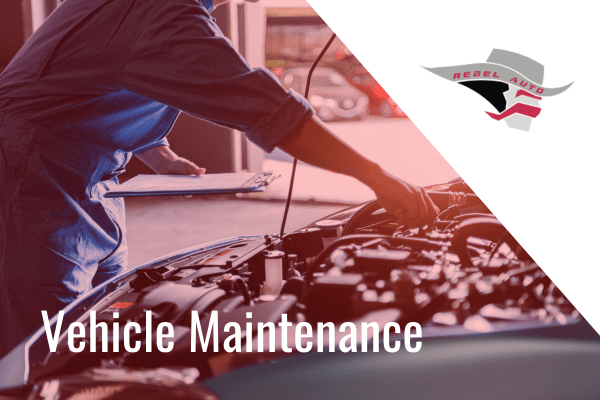How often should you get your car maintenance?
The manufacturer guide is a good starting point for periodic auto servicing schedules. But individual driving habits affecting wear rates merit adaptation. Frequent short trips producing more emissions or extreme temperatures accelerate component degradation. Also, synthetic oil enables extending conventional changes. Brakes require monitoring as pad thickness varies considerably. Transmission professionals suggest inspections as needed. Newer cars reliably run longer between coolant swaps. Batteries warrant seasonal testing in hotter locales. Spark plug lifetimes differ by vehicle. Consistently addressing all system inspections when recommended forestalls expensive repairs later on. So, how often should you get your car maintenance?
Things That Could Go Wrong Without Maintenance
Missing vehicle maintenance causes many issues. When the oil change gets delayed, heavy gunk forms and hinders lubrication worsening engine internals prematurely. Dirty oil overheats and therefore risks damage. Brakes wearing down can grind steel rotors contactless until metal touches, needing immediate costly repairs. Bald tires lose traction jeopardizing safety on wet roads. A battery lacking care might fail leaving one stranded with a dead vehicle. These illustrate but a few problems regular servicing prevents from forming, sidestepping serious breakdowns and protecting wallet from blows. Timely upkeep is paramount to long-term dependable driving.
How Often Maintenance is Needed?
Carmakers provide minimum intervals for routine vehicle maintenance. Sticking closely permits monitoring use impacts needing tweaks. Routine jobs align driving styles and vehicle age as severe cold strained engines necessitate more frequent changes. Examples include:
- Oil Changes - Every 5,000-7,500 miles or as manuals specify, synthetic lasting longer between services.
- Tire Rotations - Every 5,000-8,000 miles promotes even treadwear movement to movement across wheels.
- Brake Checks - Every 5,000-10,000 miles inspects pad thickness and tests rotors for wear signs.
- Transmission Flushes - Varies 30,000-60,000 miles dependent on specific automobile characteristics.
- Coolant Flushes - Common 60,000 miles/5 years cleans radiator’s protective coolant.
- Battery Testing - 1-2 years checks batteries under temperate conditions inside newer vehicles.
- Spark Plug Swaps - 30,000-100,000 miles or as indicated replace plugs in given automobiles.
Sticking to a maintenance schedule ensures all critical components receive detailed inspections when due. Catching small issues before they escalate prevents major repair bills down the road. Neglecting care can easily end up costing you much more over the long run in breakdowns and shortened vehicle lifespan. Consistent servicing keeps vehicles operating safely and dependably for many years.
Wondering how often should you get your car maintenance? Contact our ASE Certified technicians at Rebel Automotive for more information about vehicle maintenance and to schedule an appointment. Our auto shop proudly serves residents in the communities of Henderson, NV, Las Vegas, NV, and North Las Vegas, NV.

The manufacturer guide is a good starting point for periodic auto servicing schedules. But individual driving habits affecting wear rates merit adaptation. Frequent short trips producing more emissions or extreme temperatures accelerate component degradation. Also, synthetic oil enables extending conventional changes. Brakes require monitoring as pad thickness varies considerably. Transmission professionals suggest inspections as needed. Newer cars reliably run longer between coolant swaps. Batteries warrant seasonal testing in hotter locales. Spark plug lifetimes differ by vehicle. Consistently addressing all system inspections when recommended forestalls expensive repairs later on. So, how often should you get your car maintenance?
Things That Could Go Wrong Without Maintenance
Missing vehicle maintenance causes many issues. When the oil change gets delayed, heavy gunk forms and hinders lubrication worsening engine internals prematurely. Dirty oil overheats and therefore risks damage. Brakes wearing down can grind steel rotors contactless until metal touches, needing immediate costly repairs. Bald tires lose traction jeopardizing safety on wet roads. A battery lacking care might fail leaving one stranded with a dead vehicle. These illustrate but a few problems regular servicing prevents from forming, sidestepping serious breakdowns and protecting wallet from blows. Timely upkeep is paramount to long-term dependable driving.
How Often Maintenance is Needed?
Carmakers provide minimum intervals for routine vehicle maintenance. Sticking closely permits monitoring use impacts needing tweaks. Routine jobs align driving styles and vehicle age as severe cold strained engines necessitate more frequent changes. Examples include:
- Oil Changes - Every 5,000-7,500 miles or as manuals specify, synthetic lasting longer between services.
- Tire Rotations - Every 5,000-8,000 miles promotes even treadwear movement to movement across wheels.
- Brake Checks - Every 5,000-10,000 miles inspects pad thickness and tests rotors for wear signs.
- Transmission Flushes - Varies 30,000-60,000 miles dependent on specific automobile characteristics.
- Coolant Flushes - Common 60,000 miles/5 years cleans radiator’s protective coolant.
- Battery Testing - 1-2 years checks batteries under temperate conditions inside newer vehicles.
- Spark Plug Swaps - 30,000-100,000 miles or as indicated replace plugs in given automobiles.
Sticking to a maintenance schedule ensures all critical components receive detailed inspections when due. Catching small issues before they escalate prevents major repair bills down the road. Neglecting care can easily end up costing you much more over the long run in breakdowns and shortened vehicle lifespan. Consistent servicing keeps vehicles operating safely and dependably for many years.
Wondering how often should you get your car maintenance? Contact our ASE Certified technicians at Rebel Automotive for more information about vehicle maintenance and to schedule an appointment. Our auto shop proudly serves residents in the communities of Henderson, NV, Las Vegas, NV, and North Las Vegas, NV.


